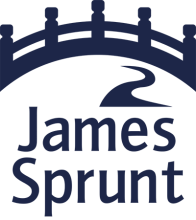James Sprunt Community College


Selected Programs at James Sprunt Community College
Explore programs at James Sprunt Community College. This list is curated by SkillPointe to match skills-based industries and careers that don't require a four-year degree.
Browse Training Programs (22)
Graphic Designer
Advertising and Graphic Design Diploma
The Advertising and Graphic Design curriculum is designed to provide students with knowledge and skills necessary for employment in the graphic design...
View Program
Advertising and Graphic Design, A.A.S.
The Advertising and Graphic Design curriculum is designed to provide students with knowledge and skills necessary for employment in the graphic design...
View Program
Web Design Certificate
The Information Technology (IT) curriculum prepares graduates for employment in the technology sector as designers, testers, support technicians...
View Program
Electrician
Electrical Systems Technology Diploma
The Electrical Systems Technology curriculum is designed to provide training for persons interested in the installation and maintenance of electrical...
View Program
Welder
Welding Technology Diploma
The Welding Technology curriculum provides students with a sound understanding of the science, technology, and application essential for successful...
View Program
Nurse - LPN / LVN
Practical Nursing Diploma
The Practical Nursing curriculum provides knowledge and skills to integrate safety and quality into nursing care to meet the needs of the holistic...
View Program
Data Security Management
Information Technology - Information Systems Option, A.A.S
The Information Technology (IT) curriculum prepares graduates for employment in the technology sector as designers, testers, support technicians...
View Program
Information Technology Network Management, A.A.S.
The Information Technology (IT) curriculum prepares graduates for employment in the technology sector as designers, testers, support technicians...
View Program
Database Administrator
Information Technology - Information Systems Option, A.A.S
The Information Technology (IT) curriculum prepares graduates for employment in the technology sector as designers, testers, support technicians...
View Program
IT Support Specialist
Information Technology - Information Systems Option, A.A.S
The Information Technology (IT) curriculum prepares graduates for employment in the technology sector as designers, testers, support technicians...
View Program
Network and Computer Systems Administrator
Information Network Certificate
The Information Technology (IT) curriculum prepares graduates for employment in the technology sector as designers, testers, support technicians...
View Program
Information Technology - Information Systems Option, A.A.S
The Information Technology (IT) curriculum prepares graduates for employment in the technology sector as designers, testers, support technicians...
View Program
Information Technology Network Management, A.A.S.
The Information Technology (IT) curriculum prepares graduates for employment in the technology sector as designers, testers, support technicians...
View Program
Systems Analyst
Information Technology - Information Systems Option, A.A.S
The Information Technology (IT) curriculum prepares graduates for employment in the technology sector as designers, testers, support technicians...
View Program
Police Officer
Basic Law Enforcement Training Certificate
Basic Law Enforcement Training (BLET) is designed to give students essential skills required for entry-level employment as law enforcement officers...
View Program
Preschool Teacher
Early Childhood Education - Career / Terminal Track, A.A.S.
The Early Childhood Education curriculum prepares individuals to work with children from birth through eighth grade in diverse learning environments...
View Program
Early Childhood Worker Certificate
The Early Childhood Education curriculum prepares individuals to work with children from birth through eighth grade in diverse learning environments...
View Program
Early Childhood Worker Certificate (Online)
The Early Childhood Education curriculum prepares individuals to work with children from birth through eighth grade in diverse learning environments...
View Program
Infant/Toddler Certificate
The curriculum prepares individuals to work with children from infancy to three years of age in divers learning environments. Students will combine...
View Program
Infant/Toddler Certificate (Online)
The curriculum prepares individuals to work with children from infancy to three years of age in divers learning environments. Students will combine...
View Program
Teacher Assistant
School Age Education, A.A.S.
This curriculum prepares individuals to work with children in elementary through middle grades in diverse learning environment. Students will combine...
View Program
Diesel Mechanic
Advanced Diesel and Heavy Equipment Certificate
The Diesel and Heavy Equipment Technology curriculum prepares individuals to apply technical knowledge and skills to repair, service, and maintain...
View Program
Diesel and Heavy Equipment Technology Certificate
The Diesel and Heavy Equipment Technology curriculum prepares individuals to apply technical knowledge and skills to repair, service, and maintain...
View Program
Diesel and Heavy Equipment Technology Diploma
The Diesel and Heavy Equipment Technology curriculum prepares individuals to apply technical knowledge and skills to repair, service, and maintain...
View Program
Diesel and Heavy Equipment Technology, A.A.S.
The Diesel and Heavy Equipment Technology curriculum prepares individuals to apply technical knowledge and skills to repair, service, and maintain...
View Program
James Sprunt Community College
Address
133 James Sprunt Drive
Kenansville, NC 28349
Kenansville, NC 28349
Phone number
910-296-2400